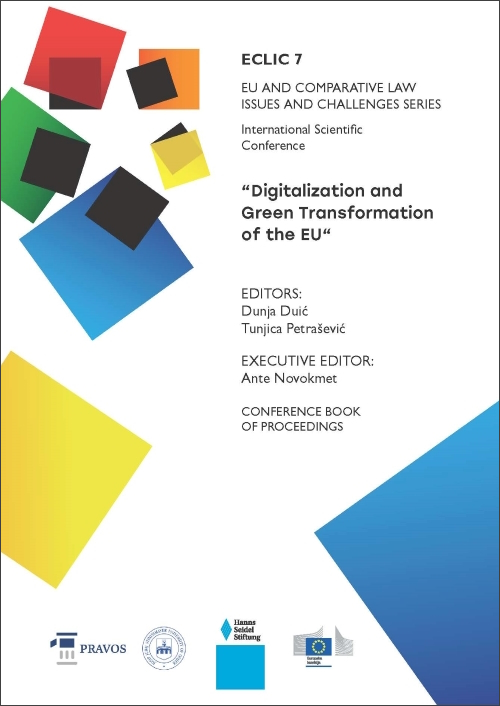SMART DIGITALIZATION AND PUBLIC SERVICES IN THE EU
DOI:
https://doi.org/10.25234/eclic/27446Abstract
„Smart digitalization “is a term which describes the implementation of contemporary information technologies and application of digital solutions in improving various public services in society. The main aspect of smart digitalization is the promotion of smart digital services such as „smart cities “, „smart government “and „smart administration “, which represent digitalization of various local, regional and central government activities in the true creation of a common digital platform with a unique approach. A common and unique platform of public services can assure their provision and delivery to various users in society, and the possibility to choose the type of services which they need in daily life. Another aspect of „smart digitalization “is participation in political life of the community by using digital services as a main tool to canalize political processes in the community. An additional element of „smart digitalization “is the harmonization of digital public services, which can assure efficient and economic functioning of public institutions, central and local administrative bodies and different levels of government authority. That approach can be important in the context of green transformation of the EU, which represents one of the main EU public policies, connected with the transition of the European economy and society in the direction of sustainable development. This paper will analyze the main elements of the integrative approach in the implementation of digital technologies in public services. Elements of the integrative approach can be divided according to the implementation of digital technologies in central government digital services, regional government, digital services and local government digital services. The second division of smart digitalization can be divided into e-democracy and e-administration, where e-democracy represents the implementation of information technology in democratic processes in society, and e-administration includes implementation of information technologies in the functioning of administrative bodies and the delivery of public services and goods to the citizens, companies and other social, economic and political subjects in society. In this paper as a research methodology deductive and synthetic approach will be used to describe the main aspects of the implementation of a „smart digitalization “policy and analyze its influence on the sustainable transformation of European society. The applied methodology needs to explain how the implementation of “the smart digitalization “policy in public services impacts on green transition and the social transformation of European society in the direction of sustainable development and strengthening energy independency.
Downloads
Published
How to Cite
Issue
Section
License
Copyright (c) 2023 Mirko Klarić

This work is licensed under a Creative Commons Attribution-NonCommercial 4.0 International License.
Authors retain the copyright on the papers published in the Journal, but grant the right of first publication to the Journal. Papers accepted for publication or already published in ECLIC of the Faculty of Law in Osijek may be published by the author(s) in other publications only with proper notice of its previous publication in ECLIC.


